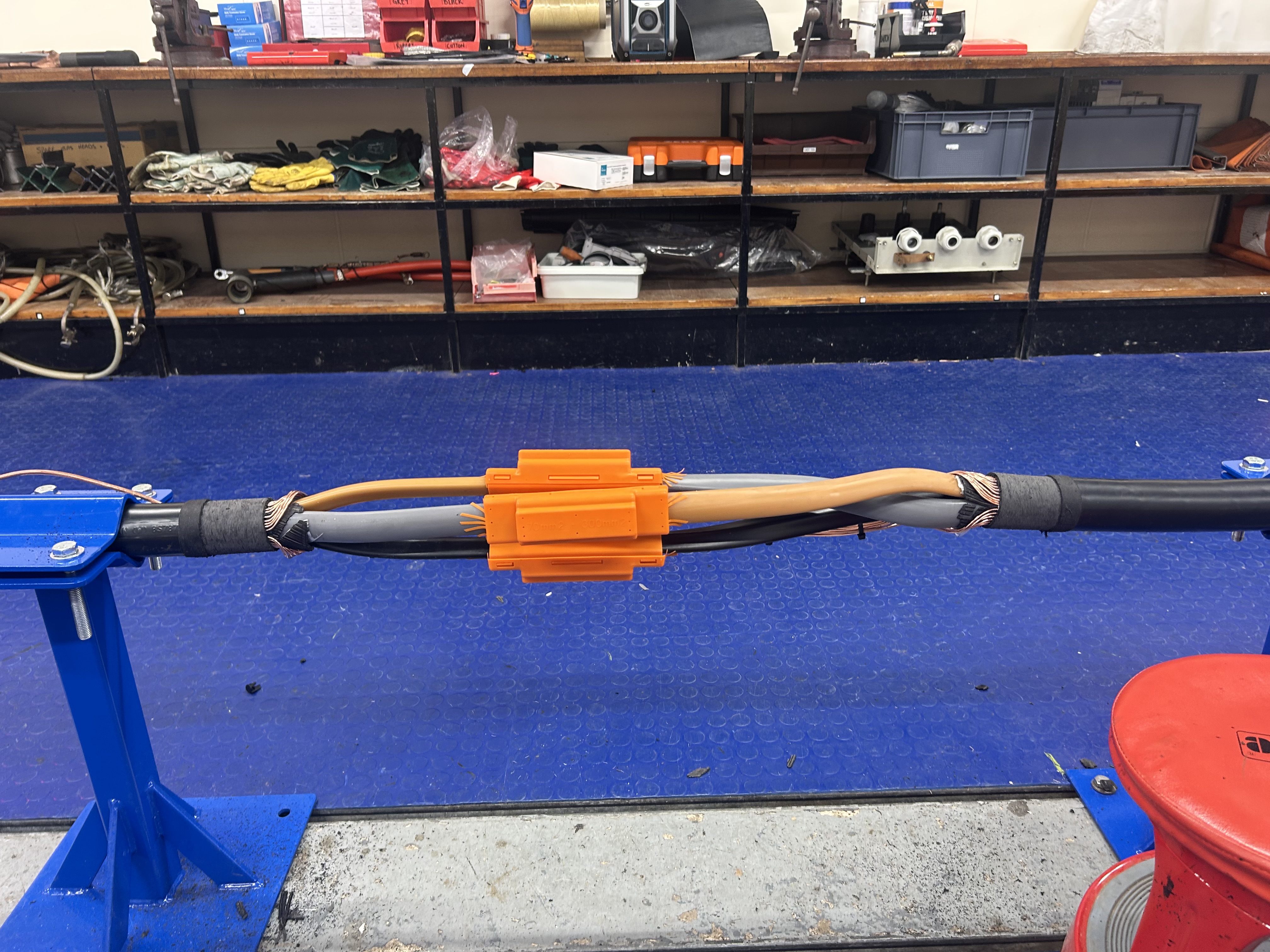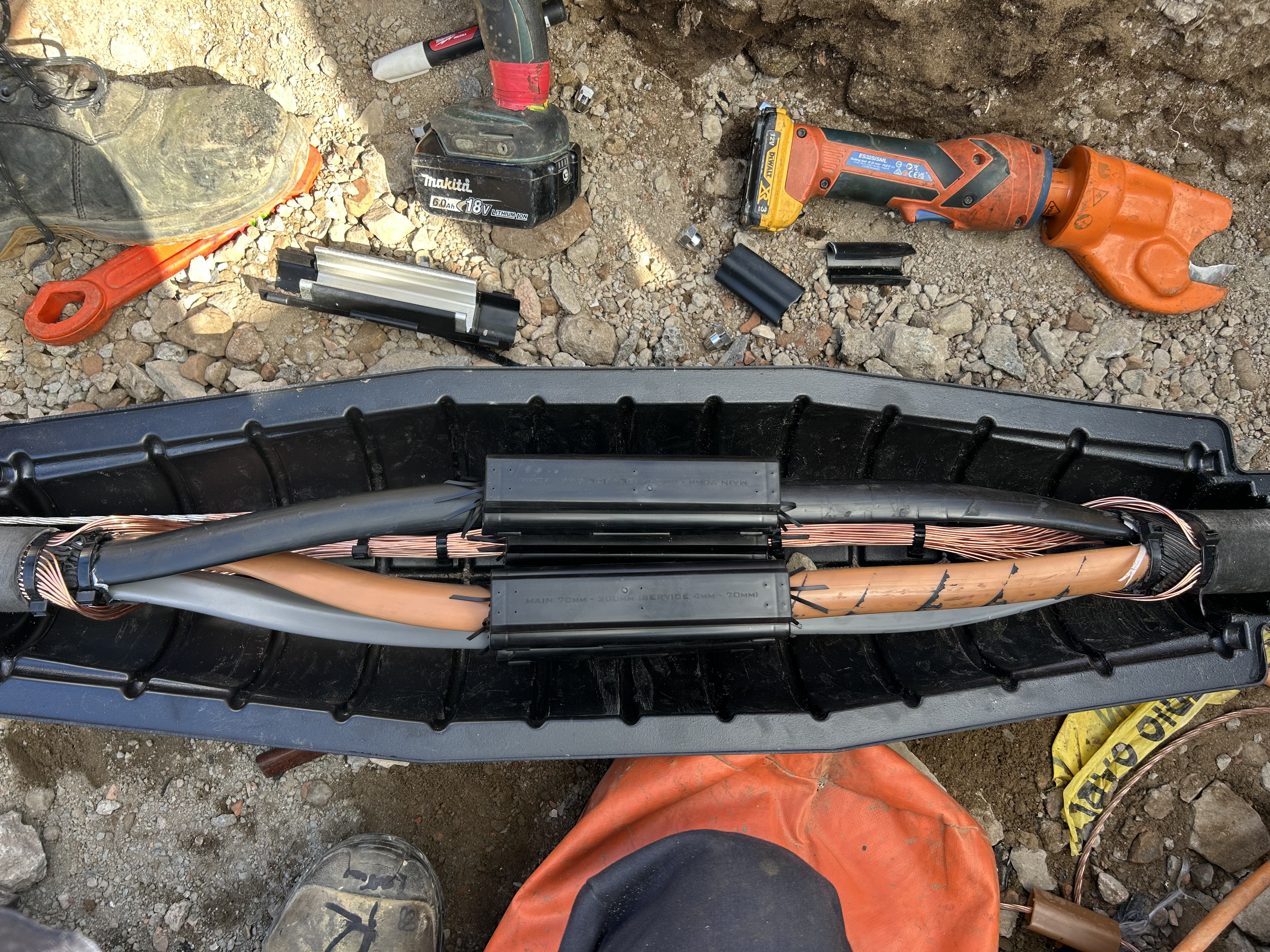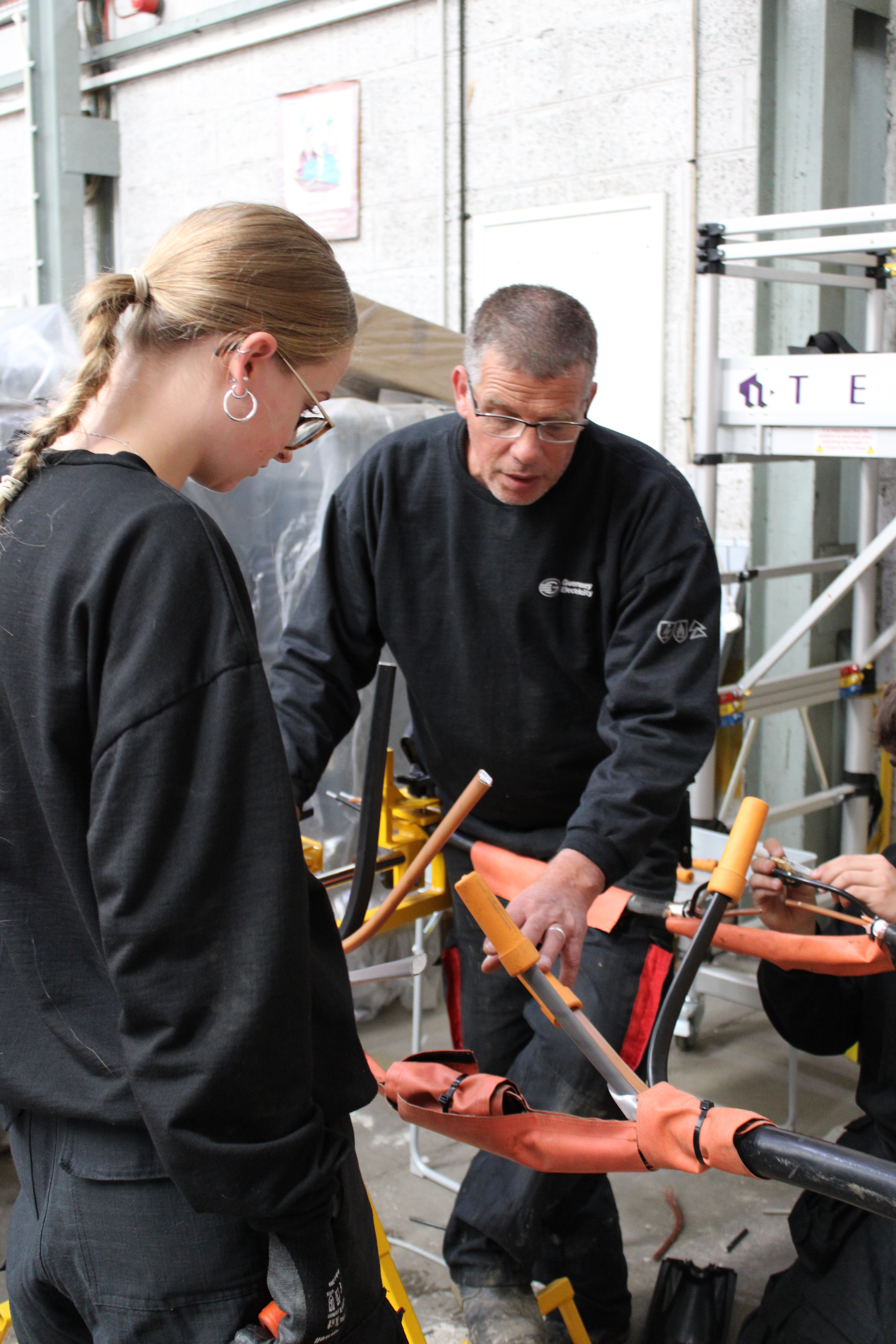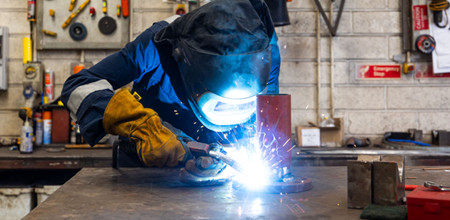To mark International Women in Engineering Day 2025, apprentice jointer Lauren shares insights into her role and what it's like working in a typically male dominated trade.
We use the terms ‘women’, ‘girls’ and ‘female’ to include all individuals who identify as female.
What got you interested in Jointing, and how's your experience been so far?
I love practical work and being hands-on, so jointing was a natural fit for me.
I’m still an apprentice jointer, and so far my experience has been positive. I’m learning so much – I actually really enjoy the challenges I’m faced with and finding solutions to them.

Can you explain what ‘jointing’ is?
If ever you’ve seen GEL work gangs around e.g. a road closure, there could well be a jointer working inside one of the excavated trenches.
Jointing is where we securely connect two or more lengths of (sometimes high-voltage) electrical cable to create a continuous and reliable flow of electricity, while also providing insulation and mechanical protection.
As a jointer, I’ll do things like stripping back cable insulation, connecting the conductors securely by crimping or soldering, and reinsulating connections with specialised materials to protect cables against moisture, damage and electrical leakage. It’s essentially a delicate surgery on Guernsey’s electrical veins, making sure your lights stay on, your devices charged and you’re powered 24/7.
Jointing isn’t a fair-weather job, so we can be out in all weathers and at different times of the day or night.
So, the next time you see a Guernsey Electricity road closure, it could be me and my team working on the underground cables.
We're hiring. See our latest Trades roles

Have you faced any challenging situations as a female apprentice Jointer? How did you handle them?
It’s a male dominated trade, so it can be hard at times being a young female only one year into her apprenticeship.
Day to day, I’m the only female in my team, so often I do feel like I need to prove myself. I find the best way to handle that challenge is to stay confident in my abilities, work hard, and ask for support from my colleagues when I need help. My team are really helpful and supportive, which goes a long way in the daily life of an apprentice jointer.
How do people usually react when they find out you're a jointer?
Some people are quite surprised when they find out I work as a jointer. Those who are sometimes make me feel unworthy to do the job, as all they see is my gender. A female jointer isn’t expected, which can sometimes translate to how capable they think I am of doing this job. But I know what I’m capable of and how I work, so I make sure any negative reactions don’t put me down.
However most people are simply curious and supportive, often asking how I’m finding it.
My experience shows that the most important thing when you’re presented with something new and unexpected (such as a female jointer) is to stay open minded, be curious and supportive. It’s something seemingly small, but outward support has such positive consequences.
It never used to be normal to see female doctors, paramedics and police officers either. The reality is, our world would be far less capable place today if we'd dismissed their talent and potential simply because of their gender.
If you could bust one myth about jointing or apprenticeships, what would it be?
That women are incapable of the work.
No matter what gender a job is more recognised for, or how difficult the work may seem, it’s your dedication, hard work and passion that matters.
For jointing, although the job is widely seen as male dominated, anyone can do it – including women. But only if they’re prepared to learn, work hard and overcome challenges.
How do you think schools could help encourage more women to consider working in a trade or engineering?
I believe schools should introduce hands-on, practical roles much earlier into conversations around careers. School career programs need to actively create spaces that normalise all career paths as accessible for everyone, regardless of traditional perceptions.
Providing role models would also challenge gender stereotypes and break down the barriers often associated with traditionally male roles. Female students may be interested in practical, hands on activities, but may feel worried, apprehensive or stupid for thinking about extending that interest into a career.
How did you hear about GEL's apprenticeship programme, and how have GEL supported you through your training so far?
Funnily enough, I heard about it through my dad. He’d spotted a Guernsey Electricity job ad on Facebook looking for apprentice jointers, so I applied and here I am today.
GEL has supported me in more ways than one during my apprenticeship. There’s an excellent training programme, colleague mentorship, and a supportive community. Plus, I’ve got people on my side who genuinely want to see me succeed.

What do you wish more people understood about women working in trades?
What we really want people to realise is that women in trades are not just capable, but we can actually enhance teams with our unique strengths, perspectives and skills. Our contributions go beyond what's physically obvious, which brings a different kind of value. When a woman commits to a trade and works hard, she can be every bit as competent and valuable as any man.
I couldn’t come into this job just knowing what to do – I have to learn. That’s why it’s important we’re allowed the same opportunities as men so we can reach a stage where completed work is based on abilities, not gender.
Interested in working with us? Click below.










